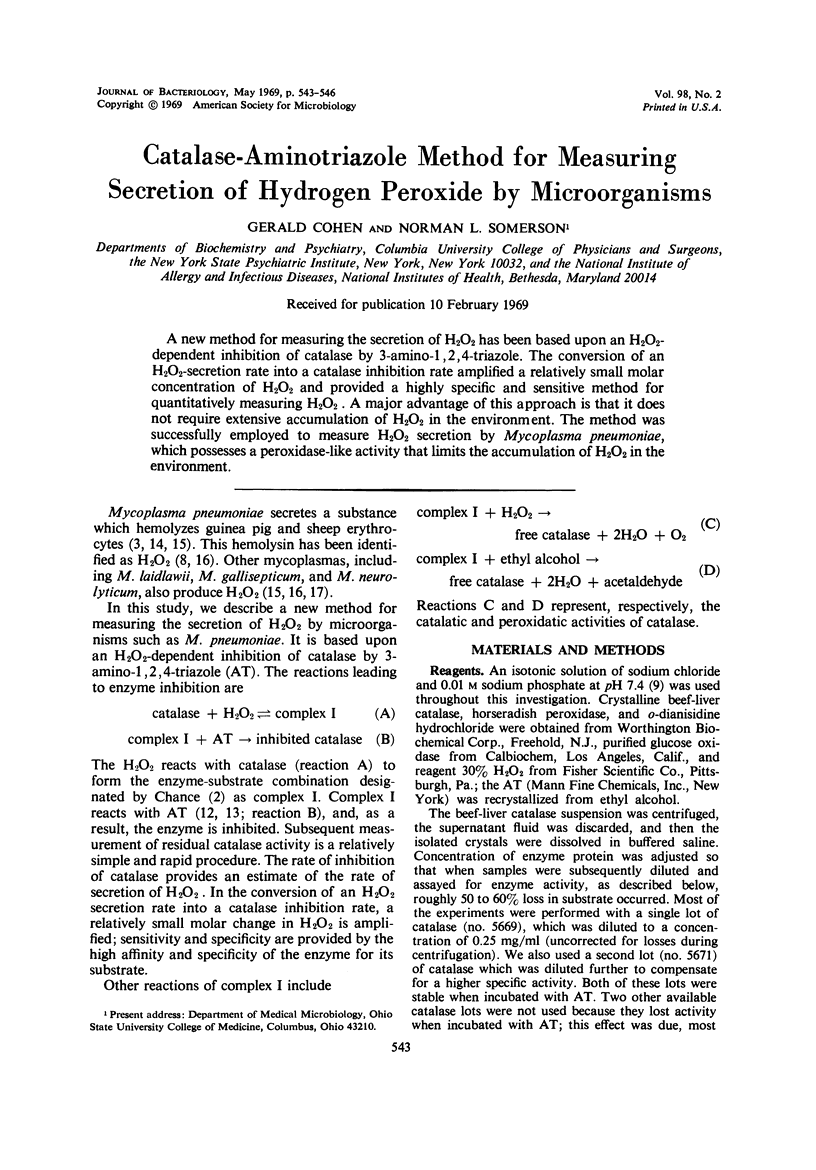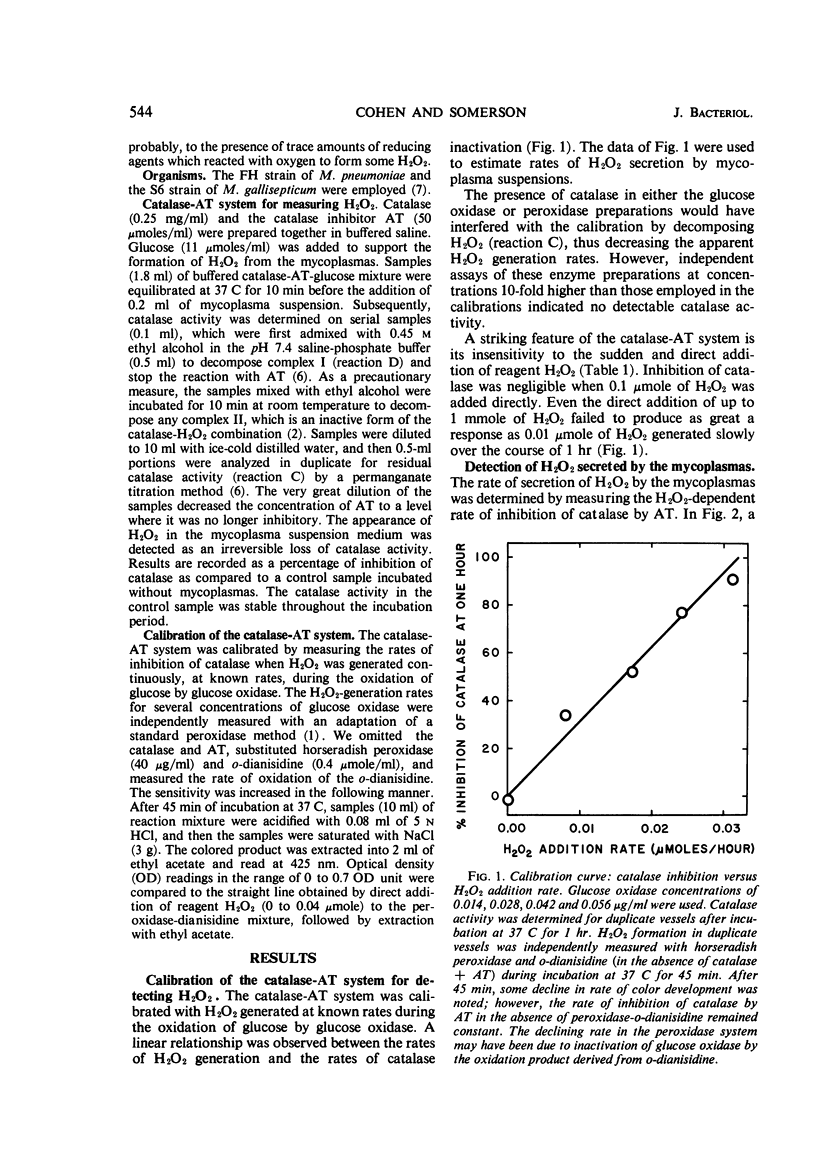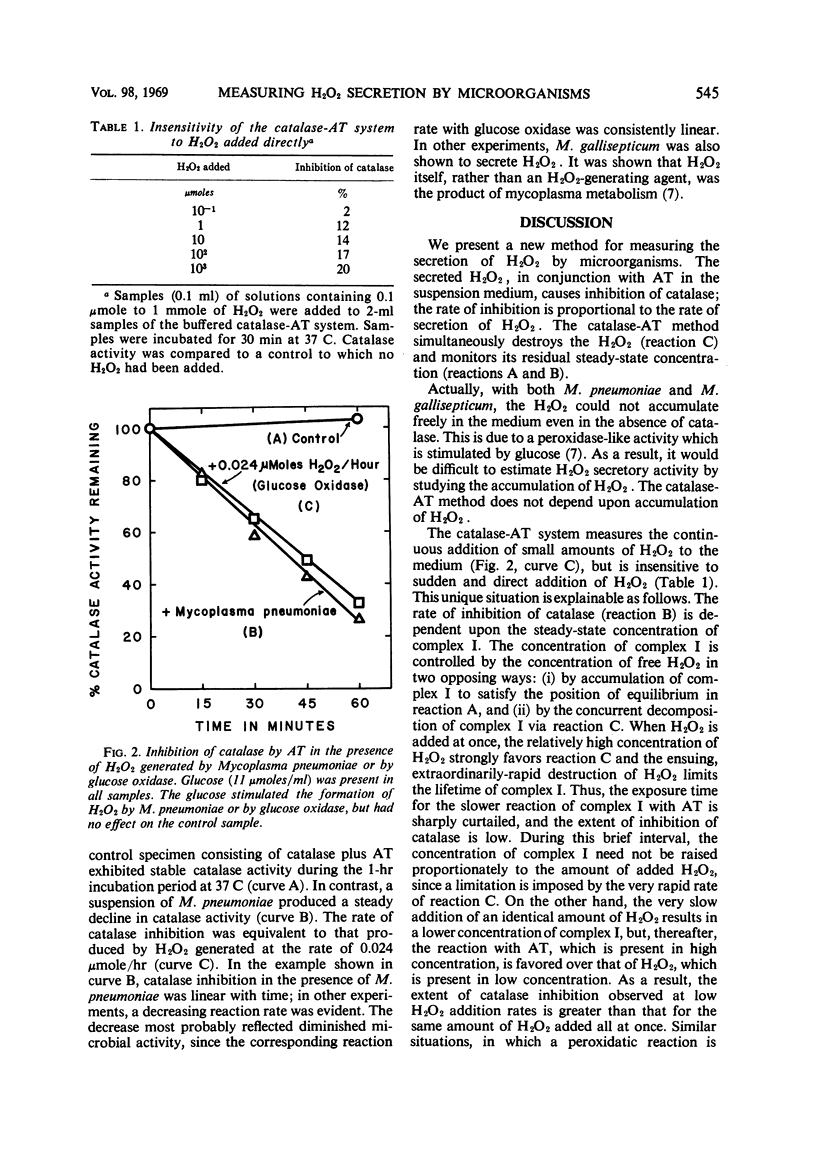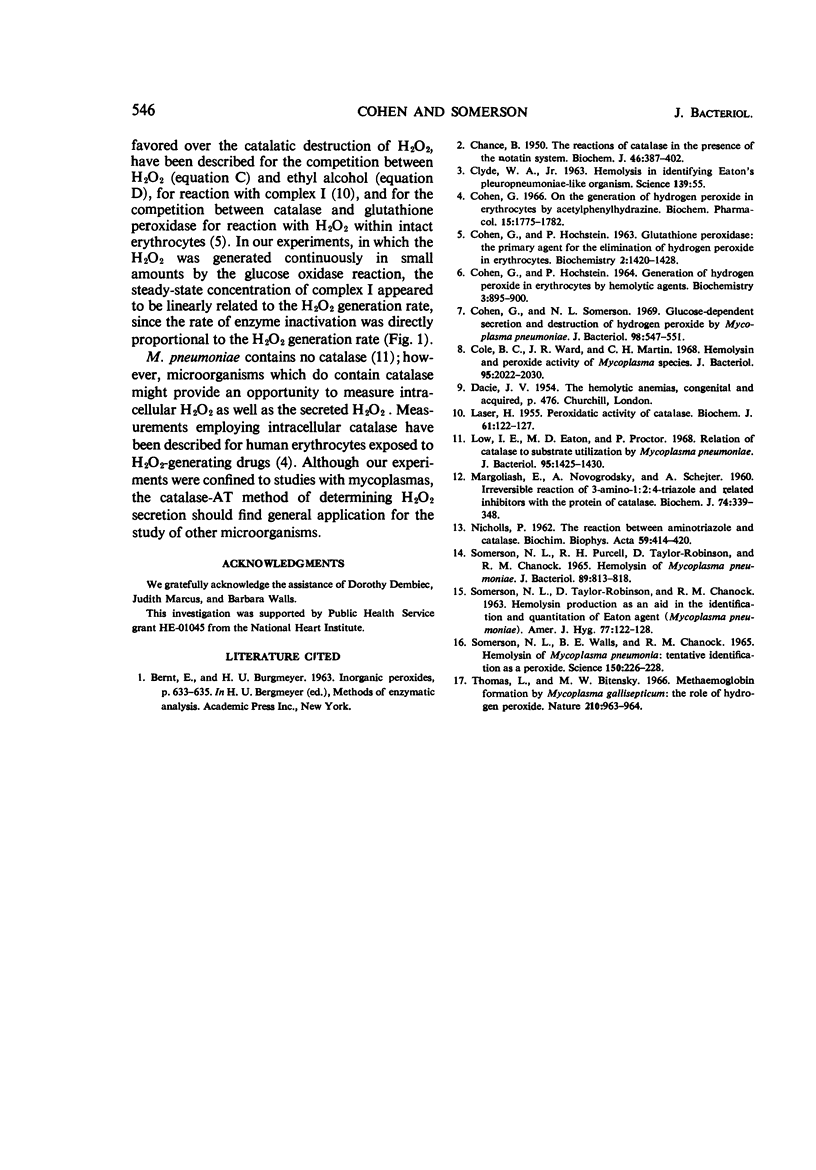Abstract
A new method for measuring the secretion of H2O2 has been based upon an H2O2-dependent inhibition of catalase by 3-amino-1,2,4-triazole. The conversion of an H2O2-secretion rate into a catalase inhibition rate amplified a relatively small molar concentration of H2O2 and provided a highly specific and sensitive method for quantitatively measuring H2O2. A major advantage of this approach is that it does not require extensive accumulation of H2O2 in the environment. The method was successfully employed to measure H2O2 secretion by Mycoplasma pneumoniae, which possesses a peroxidase-like activity that limits the accumulation of H2O2 in the environment.
Full text
PDF



Selected References
These references are in PubMed. This may not be the complete list of references from this article.
- CHANCE B. The reactions of catalase in the presence of the notatin system. Biochem J. 1950 Apr;46(4):387–402. doi: 10.1042/bj0460387. [DOI] [PMC free article] [PubMed] [Google Scholar]
- CLYDE W. A., Jr Hemolysis in identifying Eaton's pleuro-pneumonia-like organism. Science. 1963 Jan 4;139(3549):55–55. doi: 10.1126/science.139.3549.55. [DOI] [PubMed] [Google Scholar]
- COHEN G., HOCHSTEIN P. GENERATION OF HYDROGEN PEROXIDE IN ERYTHROCYTES BY HEMOLYTIC AGENTS. Biochemistry. 1964 Jul;3:895–900. doi: 10.1021/bi00895a006. [DOI] [PubMed] [Google Scholar]
- COHEN G., HOCHSTEIN P. GLUTATHIONE PEROXIDASE: THE PRIMARY AGENT FOR THE ELIMINATION OF HYDROGEN PEROXIDE IN ERYTHROCYTES. Biochemistry. 1963 Nov-Dec;2:1420–1428. doi: 10.1021/bi00906a038. [DOI] [PubMed] [Google Scholar]
- Cohen G., Somerson N. L. Glucose-dependent secretion and destruction of hydrogen peroxide by Mycoplasma pneumoniae. J Bacteriol. 1969 May;98(2):547–551. doi: 10.1128/jb.98.2.547-551.1969. [DOI] [PMC free article] [PubMed] [Google Scholar]
- Cole B. C., Ward J. R., Martin C. H. Hemolysin and peroxide activity of Mycoplasma species. J Bacteriol. 1968 Jun;95(6):2022–2030. doi: 10.1128/jb.95.6.2022-2030.1968. [DOI] [PMC free article] [PubMed] [Google Scholar]
- LASER H. Peroxidatic activity of catalase. Biochem J. 1955 Sep;61(1):122–127. [PMC free article] [PubMed] [Google Scholar]
- Low I. E., Eaton M. D., Proctor P. Relation of catalase to substrate utilization by Mycoplasma pneumoniae. J Bacteriol. 1968 Apr;95(4):1425–1430. doi: 10.1128/jb.95.4.1425-1430.1968. [DOI] [PMC free article] [PubMed] [Google Scholar]
- MARGOLIASH E., NOVOGRODSKY A., SCHEJTER A. Irreversible reaction of 3-amino-1:2:4-triazole and related inhibitors with the protein of catalase. Biochem J. 1960 Feb;74:339–348. doi: 10.1042/bj0740339. [DOI] [PMC free article] [PubMed] [Google Scholar]
- NICHOLLS P. The reaction between aminotriazole and catalase. Biochim Biophys Acta. 1962 May 21;59:414–420. doi: 10.1016/0006-3002(62)90191-9. [DOI] [PubMed] [Google Scholar]
- SOMERSON N. L., PURCELL R. H., TAYLOR-ROBINSON D., CHANOCK R. M. HEMOLYSIN OF MYCOPLASMA PNEUMONIAE. J Bacteriol. 1965 Mar;89:813–818. doi: 10.1128/jb.89.3.813-818.1965. [DOI] [PMC free article] [PubMed] [Google Scholar]
- SOMERSON N. L., TAYLOR-ROBINSON D., CHANOCK R. M. Hemolyin production as an aid in the identification and quantitation of Eaton agent (Mycoplasma pneumoniae). Am J Hyg. 1963 Jan;77:122–128. doi: 10.1093/oxfordjournals.aje.a120290. [DOI] [PubMed] [Google Scholar]
- Somerson N. L., Walls B. E., Chanock R. M. Hemolysin of Mycoplasma pneumoniae: tentative identification as a peroxide. Science. 1965 Oct 8;150(3693):226–228. doi: 10.1126/science.150.3693.226. [DOI] [PubMed] [Google Scholar]
- Thomas L., Bitensky M. W. Methaemoglobin formation by Mycoplasma gallisepticum: the role of hydrogen peroxide. Nature. 1966 May 28;210(5039):963–964. doi: 10.1038/210963a0. [DOI] [PubMed] [Google Scholar]


